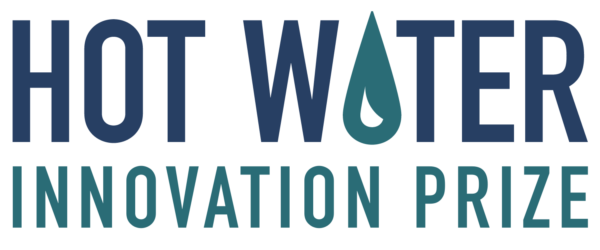
Email contest administrators at InnovationPrize@hotwatersolutionsnw.org.
The Contest is Underway!
The Northwest Energy Efficiency Alliance (NEEA) launched Phase A of the Hot Water Innovation Prize on September 18 and participants submitted Phase A information on November 22, 2024. If your organization missed this deadline but is interested in participating in the content, please reach out to the Contest Administrators at InnovationPrize@hotwatersolutionsnw.org.
Contest Guidebook and Rules
The most recent Contest documents include:
Affordable split system HPWHs are the future
The US Department of Energy (US DOE) recently issued a final rule for water heater efficiency regulations, with compliance required in 2029. From that point forward, all water heaters over 35 gallons and all medium- and high-draw water heaters sold in the US must have efficiency levels that can currently only be achieved with HPWHs.
Water heaters 35 gallons and smaller with low and very-low draw patterns are allowed to remain electric resistance for practical reasons. Space and location constraints represent challenges to installing integrated HPWHs in certain dwelling types. Research found that the solution to these constraints is a split system HPWH.
The Hot Water Innovation Prize intends to reward Participants that develop innovative split system HPWHs and bring the technology to market. Specifically, the prize is for a turnkey system with an indoor tank and separate compressor-evaporator unit housed outdoors.
NEEA is demonstrating its commitment to this energy-efficient technology by administering this three-stage Contest and providing co-funding to Participants in the latter two phases below:
Winners are selected after prototypes are evaluated. In addition to the Phase C co-funding, Winners will receive media exposure and exclusive opportunities for demonstration projects and utility incentive pilots. Full-scale utility incentive programs are expected to follow. More details of the Contest stages and Prize Package can be found in Version 2.0 of the Guidelines and Rules and the Version 2.0 Q&A.
The split-system HPWH market opportunity is significant. NEEA estimates between 1 million and 2.4 million sales annually with tremendous growth opportunity associated with electrification and the transferability to other split system applications. The U.S. energy savings opportunity is estimated at 6 quads over 30 years, equating to 100 million metric tons of CO2e greenhouse gas savings.
Additionally, these split system HPWHs are expected to improve equity by bringing energy-efficient water heating and savings to multifamily dwellings, disproportionately occupied by lower-income families and households of color.
Would your organization like to be involved?
You can sign up for updates by emailing InnovationPrize@hotwatersolutionsnw.org with your contact information.
Archive of Prize Resources
These prior documents are old versions of contest documentation that no longer govern the contest. They are provided here for reference only.
Hot Water Solutions is an initiative of the Northwest Energy Efficiency Alliance (NEEA) working to accelerate the adoption of heat pump water heaters in the Northwest by providing resources, tools and support to increase sales and installations of heat pump water heaters.
NEEA is an alliance of more than 140 utilities and energy efficiency organizations working on behalf of more than 13 million energy consumers. NEEA is dedicated to accelerating both electric and gas energy efficiency, leveraging its regional partnerships to advance the adoption of energy-efficient products, services and practices.
Since 1997, NEEA and its partners have saved enough energy to power more than 700,000 homes each year. As the second-largest resource in the Northwest, energy efficiency can offset most of our new demand for energy, saving money and keeping the Northwest a healthy and vibrant place to live.